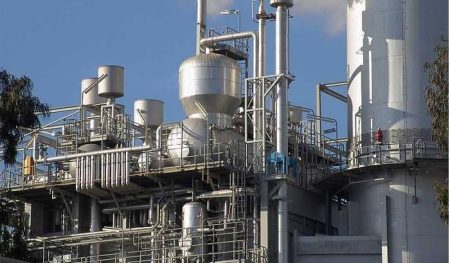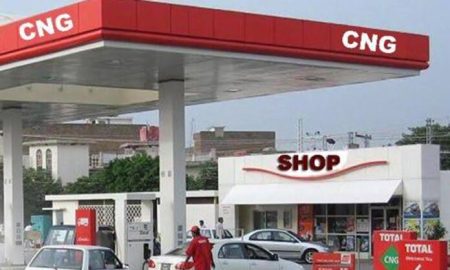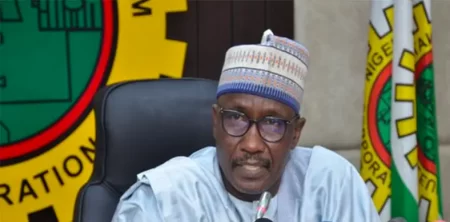 11 February 2014, Lagos – The protracted delay in signing the final investment decision on the Brass LNG project is robbing the nation of revenue. Ejiofor Alike writes that without the intervention of the federal government and the international oil companies, the project may remain a pipe dream
11 February 2014, Lagos – The protracted delay in signing the final investment decision on the Brass LNG project is robbing the nation of revenue. Ejiofor Alike writes that without the intervention of the federal government and the international oil companies, the project may remain a pipe dream
The Brass Liquefied Natural Gas (LNG) project located in Brass Island of Bayelsa State is designed to produce 10 million metric tonnes of LNG per year. The Nigerian National Petroleum Corporation (NNPC) holds 49 per cent equity in the project, while United States oil company, ConocoPhillips; French oil giant, Total and Italian company ENI hold 17 per cent stake apiece in the Brass LNG Ltd.
However, the NNPC plans to divest 17 per cent of its stake in the project after the final investment decision (FID). Of the 17 per cent to be divested, Bayelsa and Rivers State Governments are proposed to take five per cent each, while the remainder will go to NNPC’s strategic investors.
ConocoPhillips is also selling its Nigerian assets, including its stake in Brass LNG and Oando Plc has already completed the funding for the acquisition of some of the assets. However, Oando’s acquisition covers only the upstream assets of ConocoPhillips and does not involve gas-related assets, including the company’s stake in the Brass LNG.
Efforts of the Board
Conceived during the administration of former President Olusegun Obasanjo, the Brass LNG project suffered neglect and was virtually pushed to the back door, especially after the departure of Dr. Jackson Gaius-Obaseki as the Group Managing Director of the NNPC, for reasons many attribute to political consideration.
However, credit must be given to Obasanjo himself, who in his last days in office, had to look for Obaseki, a credible professional with proven track record, as the Chairman of the Board of the Brass LNG Ltd.
But for the passion, which Gaius-Obaseki has for the Brass LNG project, having conceived the project, it would have been difficult to persuade him to come back and champion the project, after he had left the NNPC.
Obaseki, together with the other shareholders represented by the former Managing Director of Brass LNG Limited, Mr. Vincenzo Di Lorenzo; Chairman of Total Nigeria Limited, Mr. Jacques De Marraud; Chairman of Nigerian Agip Oil Company (NAOC/ENI), Mr. Roberto Casulla; and the Group Managing Director of NNPC, Mr. Andrew Yakubu, have pushed the project to an enviable height, even without an FID.
With a pre-FID expenditure of over $1billion, a lot of early works have been completed on the site, demonstrating the faith of the shareholders in the project. Comfort is also drawn from the fact that the projected 10million metric tonnes of LNG to be produced yearly have been virtually sold.
In other words, they have all been committed to different buyers but the buyers will be unable to sign the Sales Purchase Agreement (SPA) until after the FID has been signed.
In terms of construction, three major contractors are expected to undertake the building of the three different packages – the gas train; the onshore components and the offshore components.
It was, however, learnt that two of the three contractors have already been selected, while the third contractors were at the last stage of selection.
So, for all intents and purposes, the contractors’ selection stage is virtually completed and this selection was said to have been done in accordance with internationally-accepted processes.
Delay of FID
THISDAY gathered that the International Oil Companies (IOCs) are developing cold feet towards the project because elections are around the corner in the country. A source close to the shareholders told THISDAY that with the elections coming up in 2015, the IOCs are not yet convinced on the direction of the project.
“So, in their characteristic nature, they do not like committing to large projects when elections are around the corner,” he said.
The apparent low level of commitment of the officials of the federal government towards the project is also said to be a disincentive to the other partners, according to some shareholders.
According to some of the shareholders, with President Goodluck Jonathan and the Minister of Petroleum Resources, Mrs. Diezani Alison-Madueke coming from the host state-Bayelsa, they should know the importance of the project to the state and the country at large.
The shareholders are also concerned that with the intervention of these two top officials of the federal government, the pace of progress towards the realisation of the FID ought to have been much faster than it is currently.
Some shareholders, it was gathered, are of the view that it is possible that the officials of governments at both the federal and state levels may not have been asking the right questions regarding the Brass LNG project.
There is also the challenge of exit of ConocoPhillips and what a shareholder described as the stringent conditions imposed by its licensing group.
Apart from having 17 per cent stake in the project, ConocoPhillips also owns the Cascade Process, which is the technology used in the implementation of the project.
“Here, one is talking of ConocoPhillips technology. If one compares the licensing group’s agreement proposal for Nigeria with what the same group made for Angola, the simplest way to describe the one for Nigeria is that it is a ‘hostile’ document.
What they are offering Nigeria comes with ‘unlimited consequential damages directly and indirectly,” one of the board members told THISDAY.
Consequently, the board has raised the alarm that the project may suffer further haemorrhage as ConocoPhillips rescheduled its final exit from the company to March 2014.
“Since their announcement that they were going, they have decided to have one of their legs inside the Brass LNG Ltd and the other outside. Their posture is not adding any more value to the project because it is slowing down would-be investors from indicating interest. This is massively hurting the project because until they leave the project, their presence will continue to negatively impact it,” said one of the shareholders.
At its recent meeting in Paris, France, the shareholders reaffirmed their commitment to the project but expressed concern over what they called the protracted exit of ConocoPhillips from the project “as well as the current attitude of their licensing group.”
A source privy to the meeting told THISDAY that the shareholders also insisted that “there are steps to be taken urgently to protect the interest of investors, LNG buyers as well as ensure maximum benefits to Nigerians and the government.” There is no doubt that the board of Brass at the moment is doing its best to make things happen but there’s a limit the board and the shareholders can go, unless it has the full support of the government and the IOCs.
More Challenges Ahead
Although there is massive infrastructure on ground, the LNG to be produced already committed to different buyers, contractors selected and funding arrangement put in place, there are however glaring challenges ahead.
There is no doubt that the board will require commitment of all the stakeholders and support by the Federal Government, especially President Jonathan and the Minister of Petroleum Resources, Mrs. Diezani Alison-Madueke, support, which some industry sources claim the board of the project already enjoys. But the first major challenge to the execution of the Brass LNG is gas supply, which is a burning issue in Nigeria today.
Although discussion is ongoing on this subject between Brass LNG and the gas suppliers -Total Joint Venture (JV); Nigerian Agip Oil Company (NAOC) JV, and Chevron JV, THISDAY gathered that agreements on fundamental issues are far-fetched.
Obaseki is said to have engaged in diplomatic shuttle to their headquarters to build an alignment between them and the shareholders.
The NNPC is also working assiduously to provide the comfort and assurances the suppliers are in dire need of, but a lot still needs to be done and this cannot exclude intervention of the highest level of government.
THISDAY gathered that the suppliers insist they have to invest heavily in gas development if they are to commit to a gas supply agreement (GSA) for 25 years with Brass LNG.
Their concerns, industry sources say, include the ability of NNPC to fund its own share of Joint Venture cash call for this development. The second major challenge to the project is the impact of the Petroleum Industry Bill (PIB), which the gas suppliers claim, recommends harsh fiscal regimes that will make gas development very challenging.
The IOCs assured that the country has enough gas reserves but it needs to be developed to meet the supply requirement of the project and probably, other gas-dependent projects, which could include power supply.
The third challenge, of course, is the exit of ConocoPhillips, which is one challenge the chairman and other board members have been cracking their brains on how to manage.
It was also gathered that at one of the meetings held between the Gauis-Obaseki and the Vice President of ConocoPhillips in London, Obaseki was said to have told ConocoPhillips point-blank that their exit would have an impact and solicited their support in managing the impact so that it does not delay the project.
What did ConocoPhillips bring to the table that they are taking away with their exit? The company brought in technology, which has been acquired; they brought in expertise and experience, and of course financial muscle. How these can be replaced will be one of the challenges that the board, management and the shareholders have to cope with before the FID is signed.
In spite of these challenges, it is hopeful that the Brass LNG project will be realised, having as the head of the board, a tested man like Gaius-Obaseki, who has strength of character, credibility and who also commands respect among all oil and gas industry players.
Nigeria, which used to supply 10 per cent of the global LNG demand, is currently supplying only seven percent because of the failure of the government and other stakeholders to strengthen the country’s position by signing the FID for Brass LNG and developing Train 7 of the Nigerian LNG Limited in Bonny Island of Rivers State.
Given the foregoing, it therefore stands to reason that, having lost her influential position in the global LNG supply chain, Nigeria cannot afford to wait any longer for the FID of the Brass LNG. Largely seen at inception as a child of necessity, the Brass LNG Limited has now become a gas company that has attained a level of national strategic importance.
– This Day



